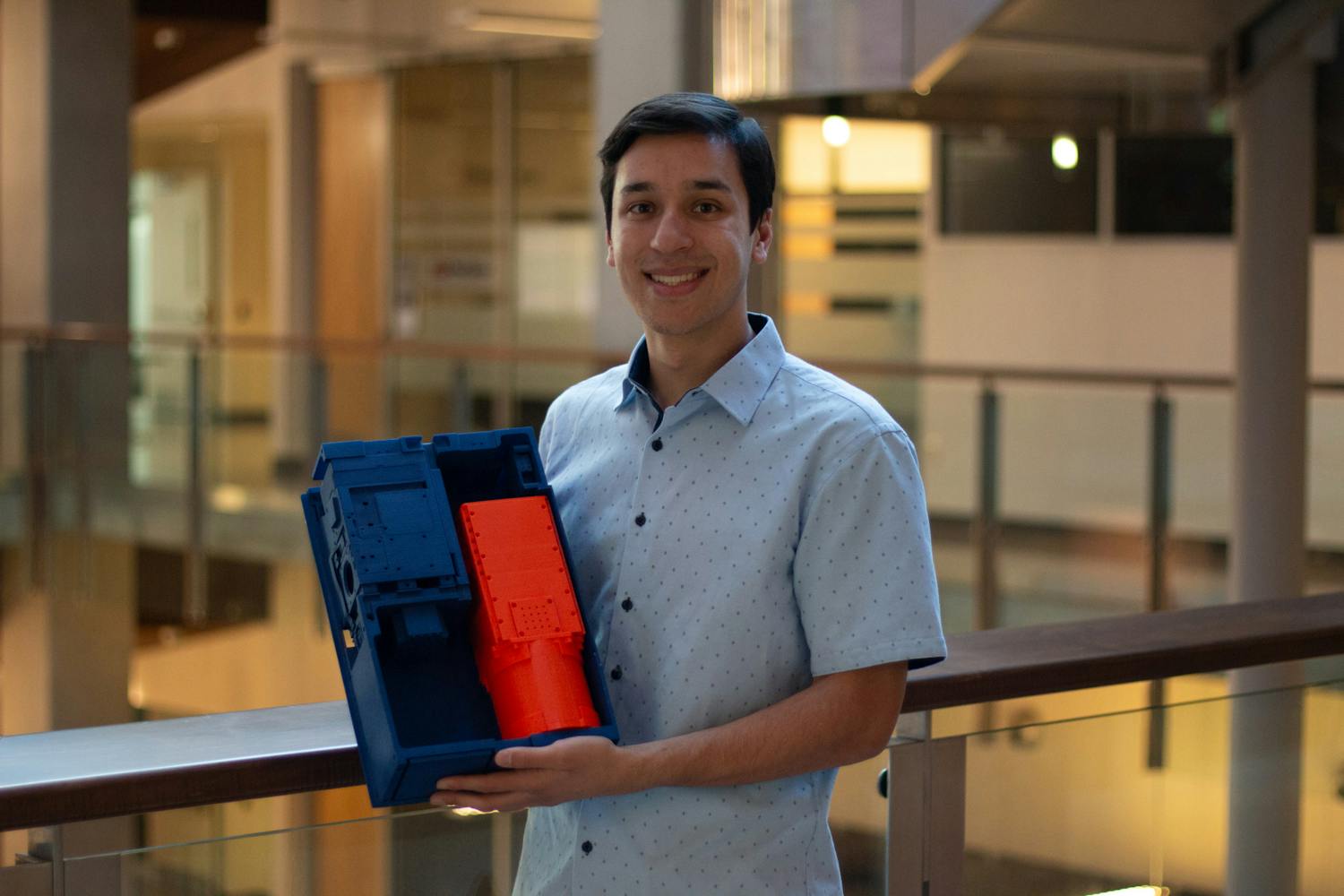Green is the new gold at ASU, and it has been for some time.
As the world's first university to have a School of Sustainability, along with a sustainability degree, ASU has prioritized environmentally conscious practices since the school was established in 2006 and the years building up to it.
With the publication of the UN's Intergovernmental Panel on Climate Change report, earlier this month, showing that the human population is at risk if Earth warms 1.5 degrees Celsius or more from its current temperature, the necessity of sustainable efforts is increasing now more than ever.
According to the report, if major efforts are not made to reduce current global warming trends caused by humans, millions of lives could be at risk.
At ASU's fourth annual State of Sustainability Summit, which took place on Sept. 24, Michael Crow was joined by sustainability leaders, scholars and students to celebrate the past year's accomplishments in sustainability.
During the fiscal year 2018, ASU ran on 60 percent renewable energy during the day, and efforts ensured that paper was 100 percent recycled on campus. ASU also ranked seventh in the 2018 Sustainable Campus Index, placing the University amongst other top-performing doctoral institutions in 17 sustainability impactful areas.
In addition, with the opening of ASU's Swette Center for Sustainable Food Systems and recent appointment of Kathleen Merrigan as the director of the center, ASU is showing clear interest towards food systems as an area for targeted sustainability efforts.
Read more: Dorks Estate: ASU's new face in battling food waste
Merrigan, the first executive director of the Swette Center, explained that she was attracted to ASU because of the solution-oriented mindsets Sun Devils have towards greater issues.
"I really do think that you need people from diverse perspectives coming together to achieve the sustainable development goals that we have set out for the globe,” Merrigan said.
ASU has implemented the word "solution" into the name of ASU colleges, departments and collaborations, which shows how ASU is always aiming to find resolutions to problems, Merrigan said.
"'Solutions' is just a hallmark word here at ASU, and I think it's more than a word," she said. "I think it's a mindset. It's a culture."
Merrigan said that even the smallest actions made in the community can contribute to an even more sustainable ASU.
“Get rid of the plastic water bottles, eat less meat, think about wasted food, think about packaging, get engaged in a community garden, volunteer at a food bank, help in a farm to school program, eat at Engrained," Merrigan said. "I mean I think there are so many ways.”
Future sustainability efforts centered in the realm of food systems sustainability include ASU committing to be the largest fair trade university in the country. The University plans to address food insecurity amongst the ASU population in coming years.
Read more: Zero waste program promotes an all-you-care-to-compost mentality
Juliann Vitullo, a senior sustainability scholar at ASU and an associate professor of Italian studies, said facilitating discussion between sustainability scholars and students affected by the decisions of the University is vital to the success of initiatives.
“What I find exciting is that you’re bringing together people at the university who are focused on making the University’s practices more sustainable with scholars who are studying sustainability as well as students," Vitullo said.
Dana Martin, a senior studying sustainability, said that some of ASU's initiatives, which tackle prominent sustainability problems, are beneficial to students.
"There are many buildings on campus that are LEED certified, like the new Student Pavilion," Martin said. "I also appreciate the steps that ASU has taken to reduce food insecurity and provide better options for students.”
According to Vitullo, food waste on campus and food insecurity should be the next hurdle for ASU's sustainability efforts.
“Elimination of food insecurity is so important to guarantee that students have adequate nutrition in terms of not only calories, but also quality," Vitullo said. "It’s something that is not only going to affect their lives now but also in the future.”
Vitullo said that there is a lot of room for ASU to improve communication between departments to ensure that food is not wasted, while also providing food to students who need it.
For students like Martin, who aim to pursue food systems sustainability as a career, the field can feel abstract and overwhelming.
She said that feels that being a student at a university like ASU, which supports food system sustainability practices, makes her career path feel more tangible, exciting and inspiring. Martin said that it is bold for large institutions to take the same actions ASU has taken.
“It honestly makes me feel like there’s hope for the future," Martin said. "ASU is a huge institution with a lot of influence and it has been a model to other universities to take a stance on the challenges that we are facing.
Reach the reporter at mshrikan@asu.edu and follow @MayaShrikant on Twitter.
Like The State Press on Facebook and follow @statepress on Twitter.



